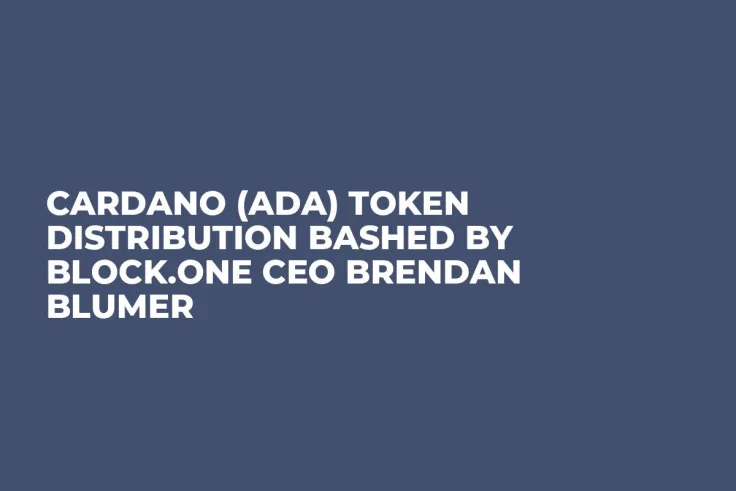
Brendan Blumer, CEO and co-founder of the Block.one team behind EOS.IO software, has raised several important questions about Cardano's (ADA) token distribution.
Five questions for ADA by Brendan Blumer
First, Mr. Blumer asked about the benefits of the ADA tokensale over the proof of work (PoW) mechanism in terms of equitability.
How was the ADA token sale more equitable than PoW? How long was the distribution period? How much awareness was there for participation throughout the full distribution period? How was it priced? Why do you think liquidity is so low relative to the market cap?
— Brendan Blumer (@BrendanBlumer) June 1, 2021
He asked about how long the period was initially scheduled for the distribution of ADA tokens between holders.
Also, the EOS.IO co-founder questioned the community's awareness in terms of participation in the ADA tokensale through the entire distribution period.
Finally, Mr. Blumer announced that he is interested in the process of initial price evaluation for ADA token distribution.
Is proof of work (PoW) an equitable distribution mechanism?
His last question challenged not only the first days of ADA token distribution but also its present-day tokenomics. Mr. Blumer is wondering why liquidity on ADA markets is so low in comparison to its market cap.
According to CoinGecko, Cardano's daily trading volume is roughly $5 billion while its market capitalization exceeds $55 billion.
Recently, Cardano (ADA) inventor Charles Hoskinson responded to Mr. Blumer's take on proof of work (PoW) as an equitable distribution mechanism.
The CEO of Input Output Global opined that this mechanism is equitable only for those holding patents for ASICs and receiving governmental subsidies for electricity costs.
 Dan Burgin
Dan Burgin Vladislav Sopov
Vladislav Sopov